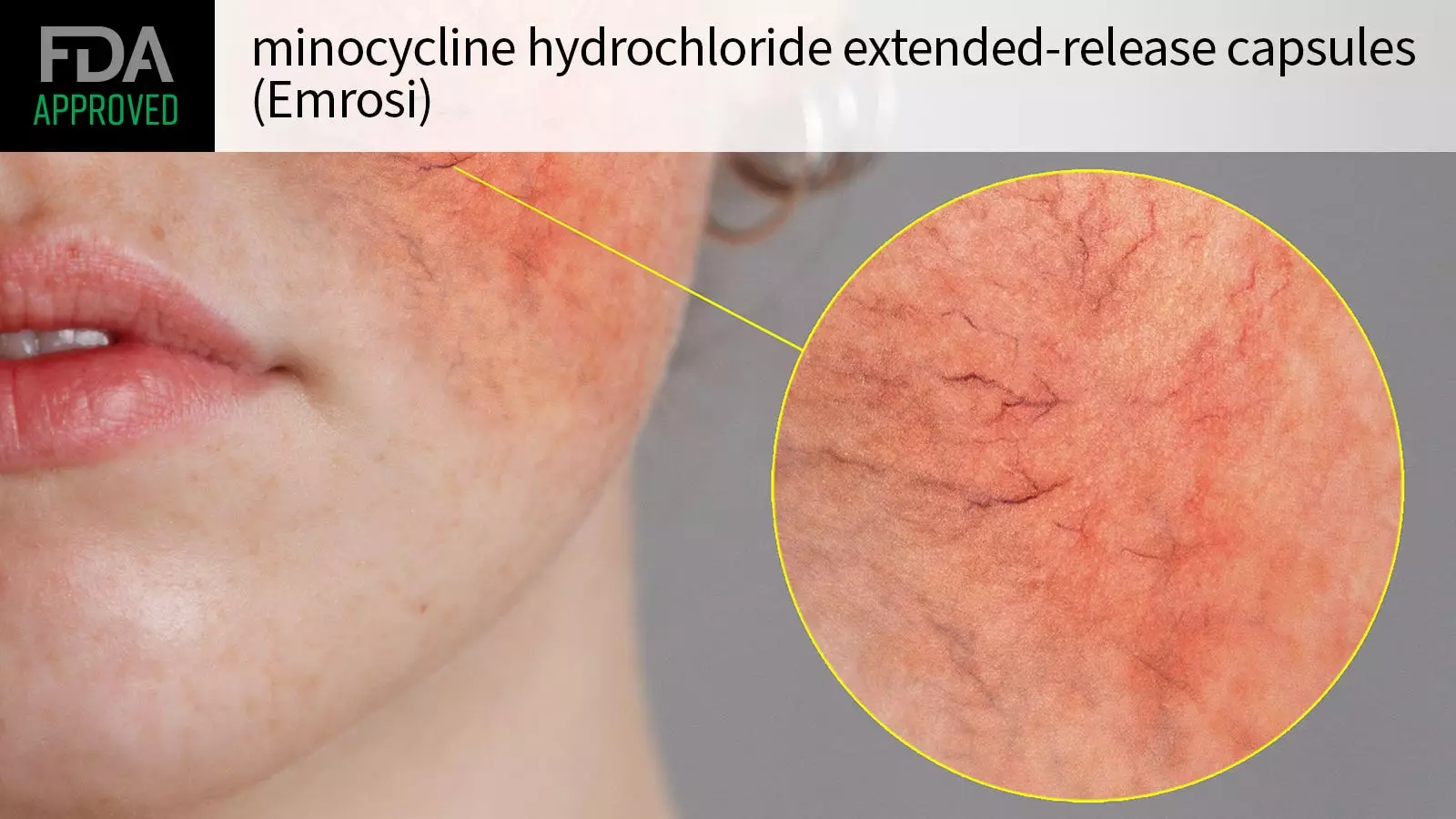In a significant stride for dermatological treatments, the U.S. Food and Drug Administration (FDA) has recently given the green light to minocycline hydrochloride extended-release capsules, marketed as Emrosi, specifically for addressing inflammatory lesions associated with rosacea in adults. This approval comes on the heels of promising results from two extensive multicenter phase III clinical trials known as MVOR-1 and MVOR-2, which involved an impressive sample size of 653 participants grappling with papulopustular rosacea.
Study Design and Results
Participants enrolled in these studies faced a common but distressing condition characterized by the presence of 15 or more papules or pustules, with an average of 25 inflammatory lesions. Each participant began with a severity baseline, quantified using the Investigator’s Global Assessment (IGA) scoring mechanism, with scores indicating moderate to severe rosacea. The clinical trials randomly assigned participants to receive either daily dosages of minocycline hydrochloride (40 mg), the traditionally favored doxycycline, or a placebo over a span of 16 weeks.
Results from the trials revealed a stark contrast in efficacy levels. In MVOR-1, success rates for the minocycline hydrochloride group reached an impressive 65% in achieving a clear or near-clear IGA score, outpacing the doxycycline (46%) and placebo (31%) groups. Similarly, the MVOR-2 trial mirrored these findings with 60% success for minocycline as opposed to 31% for doxycycline and 27% for placebo. Moreover, the reduction in inflammatory lesions was significantly more pronounced in the minocycline hydrochloride cohort, showing a remarkable decrease of 75-79%, compared to 60-63% for doxycycline and 46-47% for the placebo group.
Potential Side Effects and Precautions
Despite the groundbreaking nature of this approval, it is crucial to approach the drug with caution. Documentation accompanying the prescribing information indicates that dyspepsia was the most frequently reported adverse event during the trials, occurring in 2% of patients, while none in the placebo category experienced this issue. The prescribing information reiterates the importance of responsible use, particularly given the risks associated with drug-resistant bacteria, emphasizing that minocycline should only be prescribed when effectively indicated.
Additionally, it is imperative for healthcare providers to be vigilant about potential side effects and contraindications. Minocycline is not advisable for individuals with previous allergic reactions to tetracyclines, as serious reactions have been documented, including anaphylaxis and other severe skin conditions. Pregnant and breastfeeding women, as well as children, are also advised against using this medication due to risks of dental discoloration and potential interference with bone growth.
Pharmaceutical company Journey Medical has announced its optimistic projection for the market availability of Emrosi in the first half of 2025. This newly approved treatment represents a promising addition to the therapeutic arsenal against rosacea, providing hope for those affected by this persistent skin condition. With robust clinical data supporting its efficacy, minocycline hydrochloride may not only enhance patient outcomes but also pave the way for further innovations in the field of dermatology.


Leave a Reply